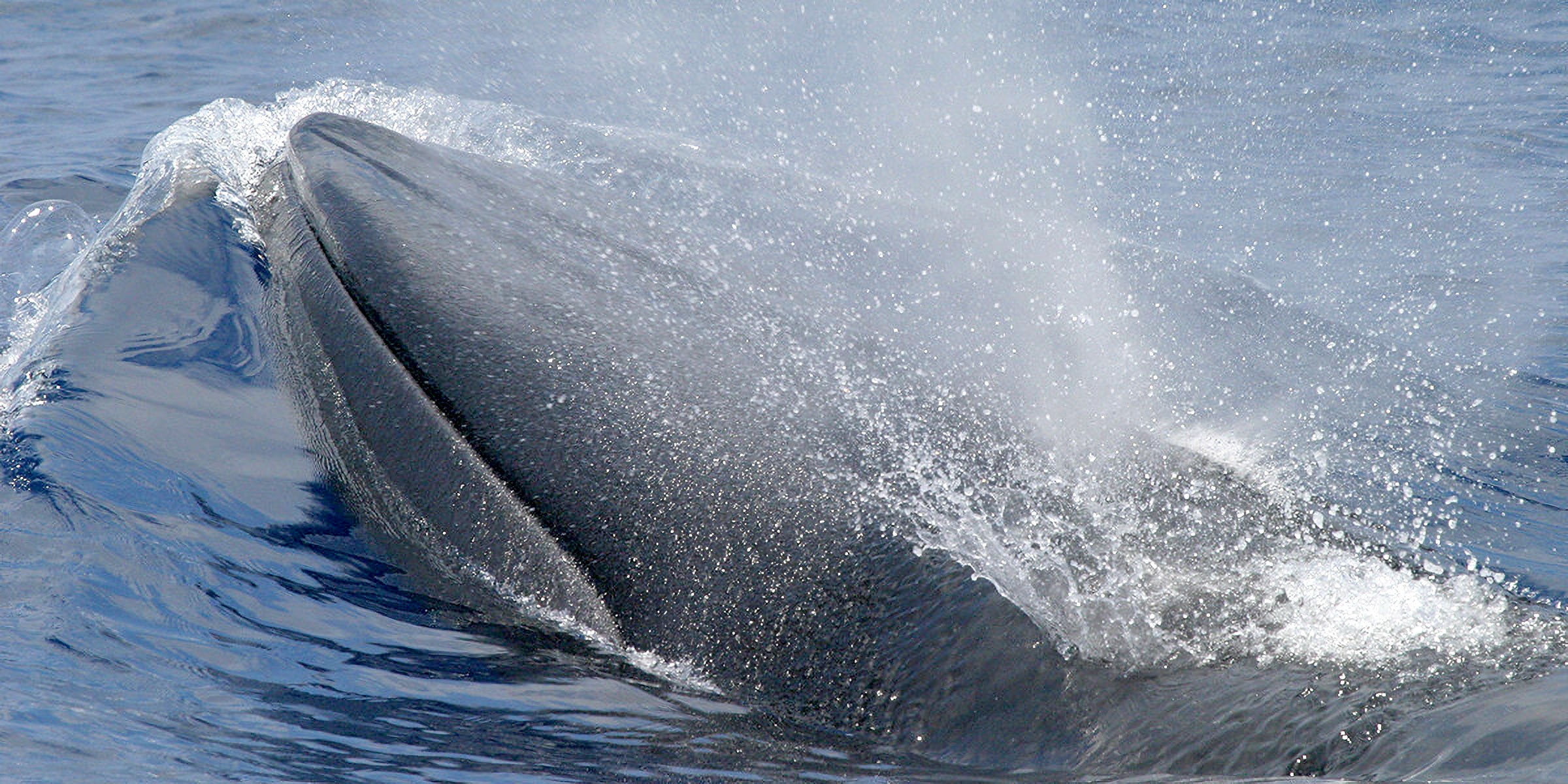Earthjustice goes to court for our planet.
We’re here because the earth needs a good lawyer.
Oil Companies Are Trying to Grab an Endangered Whale’s Small Pocket of Ocean
This page was published 2 years ago. Find the latest on Earthjustice’s work.
What happened: A new court order means precious habitat for the critically endangered Gulf of Mexico whale is in danger from oil and gas drilling. Environmentalists are appealing that decision.
Why it matters: There are about 50 Gulf of Mexico whales left in the world, and oil and gas development is the greatest danger to their survival. In August,the federal government gave the whales the most basic protections by removing about 6 million acres of their home territory from the upcoming Lease Sale 261 —the result of an interim agreement between the government, Earthjustice, and other environmental groups. The agreement left 67.3 million acres open for oil and gas exploration — yet oil companies went to court demanding to get access to the whales’ small portion too.
Across the board, fossil fuels are exacerbating the biodiversity crisis by causing pollution, planet-warming carbon emissions, and the destruction of critical habitats. Earthjustice’s strategy for protecting imperiled species includes ending our dependence on fossil fuels.
What to know about the Gulf of Mexico whale
- Where they live: The Gulf of Mexico whale, also known as the Rice’s whale, lives throughout the northern waters of the Gulf, stretching from Texas to Florida in waters 100-400 meters deep, with most frequent sightings about 60 miles off the coast of Florida. Unlike many whales, they do not make long-distance migrations, but stay in Gulf waters year-round.
- Newly discovered: Researchers confirmed in 2021 that the Gulf of Mexico whale is a distinct species, and one of the most endangered on Earth.
- Fossil fuel development is a threat: The whales have already suffered from oil industry activity in the Gulf: In 2010, the BP Deepwater Horizon oil spill wiped out one-fifth of the whales’ population.
The fight for better protections
- Taking a closer look: Immediately after the BP Deepwater Horizon disaster, the federal government realized that it needed to reassess how continuing oil and gas development in the Gulf might affect the remaining Gulf of Mexico whales.
- A weak assessment: After the BP disaster, it took a decade and an Earthjustice lawsuit for the government to release a new assessment of how oil and gas development in the Gulf impacts the remaining Gulf of Mexico whales. The Trump administration produced a new analysis in 2020, but it was deeply flawed.
- Legal action: Earthjustice filed a lawsuit on behalf of the Sierra Club, the Center for Biological Diversity, Friends of the Earth, and Turtle Island Restoration Network. The lawsuit asked a federal court in Maryland to send the Trump administration’s analysis back to the drawing board.
- Three steps forward: In August, the Biden administration reached a settlement agreement that included a 3-step plan to better safeguard the Rice’s whale, pausing our lawsuit for 13 months.
Under the settlement agreement
- The Bureau of Ocean Energy Management (BOEM) will exclude about 6 million acres of the whale’s habitat from any oil and gas lease sales that occur while the lawsuit stay is in effect.
- BOEM will require future oil and gas leaseholders to reduce the risks of vessel strikes to the whales. Any leases issued in the Gulf during the litigation stay will require oil and gas industry vessels moving through the whale’s habitat to travel at no more than 10 knots (about 11.5 mph).
- BOEM will notify existing oil and gas leaseholders of the threat that vessels pose to the whales. The agency will remind anyone seeking a permit for fossil fuel development in the Gulf to avoid harming, killing, or harassing protected species.
The industry’s greedy grab
- Suing for more: The government’s settlement agreement left 67.3 million acres open in the Gulf of Mexico for oil and gas development in Lease Sale 261. Yet the American Petroleum Institute, Chevron, Shell, and the State of Louisiana sued to take back that small portion set aside for the Rice’s whale.
- A judge sides with industry: This week, the Western District of Louisiana granted a preliminary injunction that removes the protections for the whale in the upcoming lease sale, adding back the 6 million acres.
What comes next
- We’re fighting back: Represented by Earthjustice, the Sierra Club, the Center for Biological Diversity, Friends of the Earth, and Turtle Island Restoration Network are appealing the court order to remove protections for the Rice’s whale. The groups have appealed the ruling to the Fifth Circuit Court of Appeals, which recently delayed the sale until November 8. The Court set a schedule to resolve the appeal on an expedited schedule before that date.
- A five-year plan: The long-term future of Rice’s whales and other Gulf species also depends on BOEM’s recently released Five-Year Program for oil and gas leasing, which allows for up to three damaging lease sales in the Gulf by 2029. BOEM will decide whether to hold those sales, what acreage to offer, and under what conditions in the future.
- The fight continues: We’ll continue to fight business-as-usual leasing in the Gulf that will further harm Rice’s whales, Gulf communities, and our climate.
Join Earthjustice in urging the Biden administration to fully protect the endangered Gulf of Mexico whale from extinction.

Originally published on August 24, 2023.